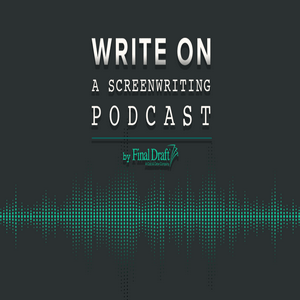Write On: 'NCIS Origins' Showrunners David J. North and Gina Lucita Monreal
“If you can make the twists [in the story] hit your character in an emotional way and set up their emotional arc, then when the case twist intersects with them, if it's hitting them in the deepest way, in the most unexpected way, maybe – then you've done your job. So it's getting that emotional arc to really bounce off of the crime story in the most impactful way,” says Gina Lucita Monreal about the most powerful way to fuse together story and character. On today’s episode, we talk with David J. North and Gina Lucita Monreal, showrunners and creators of the CBS show NCIS: Origins that brings a fresh perspective to one of television’s most beloved franchises as it dives into the early career of a young Leroy Jethro Gibbs (played by Mark Harmon in the original NCIS). Set in the 90s, NCIS: Origins taps into the nostalgia of the era, from great music from bands like Pearl Jam to life with pagers and payphones. North and Monreal discuss getting to know each other a decade ago writing for the original NCIS, and how now they are pushing the boundaries of procedural television by creating more complex, character-driven storylines. “The biggest challenge for us isn't the going back to the 90s. I mean, I think for a lot of procedural writers, that would have been a challenge, that you're losing the DNA and the fingerprints, all that stuff. But for Gina and I, that's not really ever the way we leaned into NCIS or wrote the show. Our episodes were definitely more about the characters, so that's what we looked forward to. And obviously in each episode of Origins, it's very character based. I would say the most difficult part of going back is just sticking to canon, knowing it. Weaving in and out, trying to, when you hit something and saying, ‘Okay, well, we know this happened in season three of NCIS,’ so trying to honor it while also using it to our advantage – that's difficult. We get beat up a lot on X, and sometimes we have to just pick a path,” says North about the challenges of writing beloved characters with a lot of well-known history. To learn more about North and Monreal’s writing process and hear their advice for emerging TV writers, listen to the podcast.
